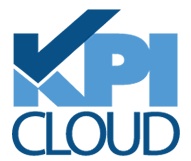by Ashok Das
Knowledge Modules (KM), components of Oracle Data Integrator’s Open Connector Technology, are generic, highly specific and reusable code templates which defines the overall data integration process. Each Knowledge Module contains the knowledge required by ODI to perform a specific set of actions or tasks against a specific technology or set of technologies, such as connecting to this technology, extracting data from it, transforming the data, checking it, integrating it, etc.
 Oracle Data Integrator provides a large number of knowledge modules out-of-the-box. Knowledge Modules are also fully extensible. The code can be opened and edited through a graphical user interface to implement new integration methods or best practices (for example, for higher performance or to comply with regulations and corporate standards).
Oracle Data Integrator provides a large number of knowledge modules out-of-the-box. Knowledge Modules are also fully extensible. The code can be opened and edited through a graphical user interface to implement new integration methods or best practices (for example, for higher performance or to comply with regulations and corporate standards).
ODI Uses Six Different Types of Knowledge Modules
- RKM (Reverse Knowledge Module) are used to perform a customized reverse-engineering of data models for a specific technology. It extracts metadata from a metadata provider to ODI repository. These are used in data models. A data model corresponds to group of tabular data structure stored in a data server and is based on a Logical Schema defined in the topology and contain only metadata.
- LKM (Loading Knowledge Module) are used to extract data from heterogeneous source systems (files, middleware, databases, etc.) to a staging area. These are used in Interfaces. An interface consists of a set of rules that define the loading of a datastore or a temporary target structure from one or more source datastores.
- JKM (Journalizing Knowledge Modules) are used to create a journal of data modifications (insert, update and delete) of the source databases to keep track of changes. These are used in data models and used for Changed Data Capture.
- IKM (Integration Knowledge Module) are used to integrate (load) data from staging to target tables. These are used in Interfaces.
- CKM (Check Knowledge Module) are used to check data consistency i.e. constraints on the sources and targets are not violated. These are used in data model’s static checks and interfaces flow checks. Static check refers to constraint or rules defined in data model to verify integrity of source or application data. Flow check refers to declarative rules defined in interfaces to verify an application’s incoming data before loading into target tables.
- SKM (Service Knowledge Module) are used to generate code required for data services. These are used in data models. Data Services are specialized web services that enable access to application data in datastores, and to the changes captured for these datastores using Changed Data Capture.
 |
Ashok Das is a Senior Consultant at KPI Partners and an Oracle Certified Specialist who specializes in OBIEE and the Oracle BI Applications. He has implemented BI Apps solutions for clients across various industries that include in Sales, Marketing, Supply Chain & Order Management, Financials, Projects, HR, and Procurement & Spend Analytics on source systems such as JDE, Salesforce, Siebel, Peoplesoft, and eBusiness. Check out Ashok's blog at KPIPartners.com. |



